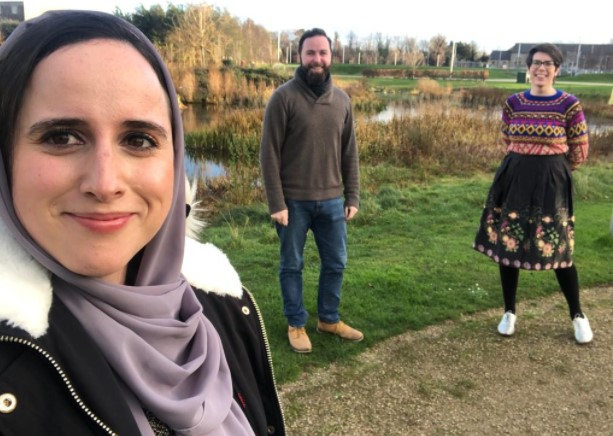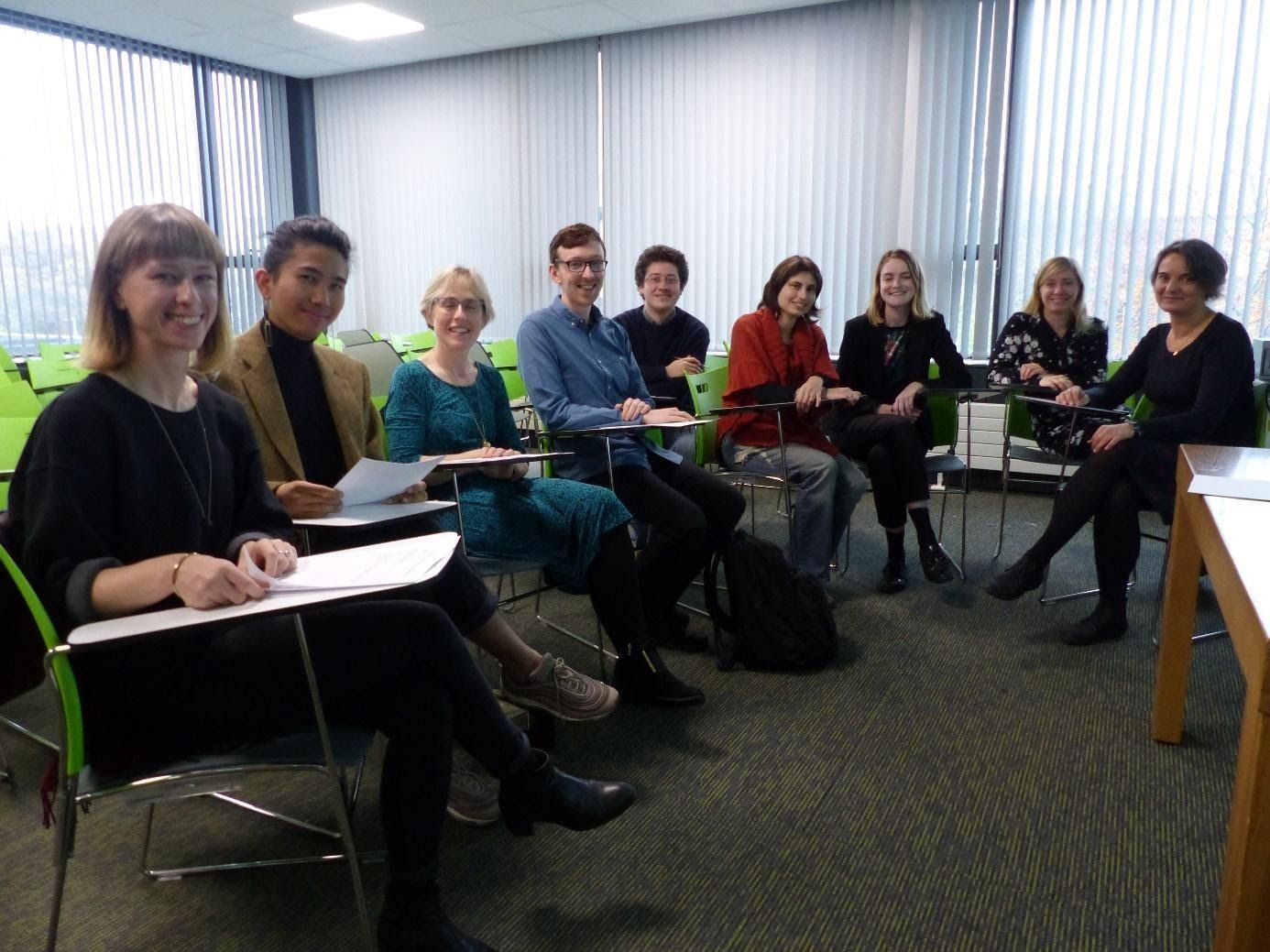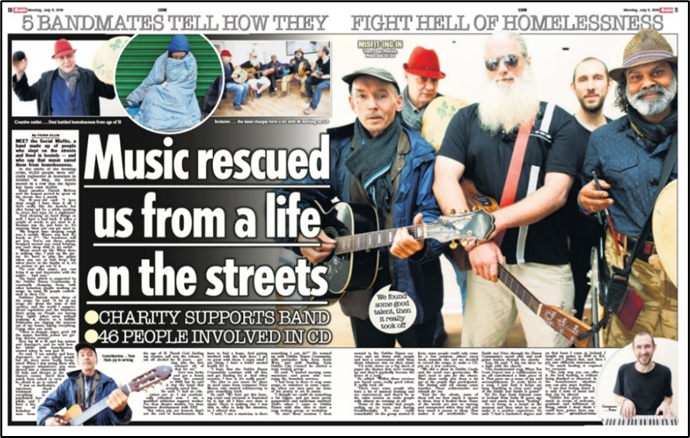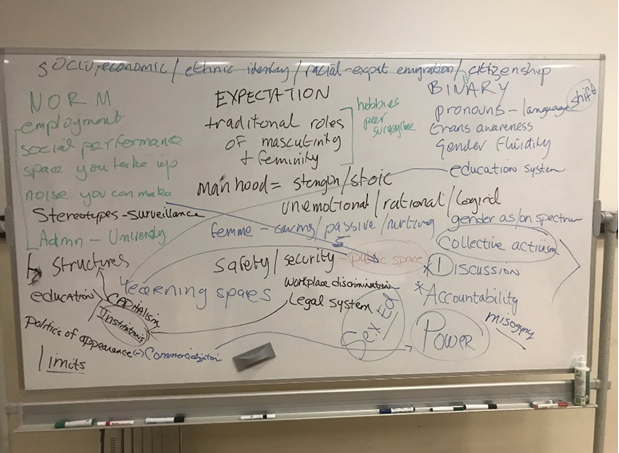This survey was implemented in order assist the school with identifying the areas they need to address in terms of EDI and feed into College and University policy. Once the School decided on the survey, focus groups were held in order to gauge what the issues were, and what the school wanted to achieve with the survey. We also wanted to reach out to the various stakeholders to help identify the key areas and recurring issues, and any other current research on campus.
Student Focus Group: The first of the focus groups involved student representatives. The Students Union, and other groups were invited, and a general call to students across English, Drama and Film. This was a really interesting exercise as we had a diverse range of voices, from across the student body. DF met with representatives of the LGBTQ+ and Disability societies. They detailed their issues, concerns and suggestions at a campus and school level which also fed into the survey design.
The top 5 issues from these meetings were: the transition to third level; social pressure; money and commute; mental health; time management.
The student focus groups brought up a number of issues, some specific to the school and some specific to the campus. Issues like lack of physical space (for study, or socialising, having lunch etc.), the shortfall of gender-neutral toilets, the physical inaccessibility of the Newman Building for students with a disability (in particular, the large lecture theatres) and supports for those with caring responsibilities are all areas that would have to be addressed at a campus level. However, areas which were school specific related to curriculum design, discussion on new concepts (student and staff training), visual inclusivity in the classroom and the associated resource materials. The student focus group was happy to have the opportunity to feedback, and felt this was something that should be continued, but were eager that action would be taken on needs.
Staff focus group: One of the main concerns of the staff focus group was what issues from the survey data they could address, and what issues would be campus wide and beyond the control of the school. Staff were eager to see both what students perceived as positive and as negative, and what steps could actually be taken to tangibly address any issues (bearing in mind existing pressures around workloads). The suggested questions added to the bank also included a lot around student workload and study management, and this is definitely a major concern for students.
The Survey: The survey was launched on Feb 17 and was open for responses until May 5. Unfortunately, due to the COVID-19 closures, students were off campus from March 13 and there was a drop off in participants after that point. However, those that did respond were very engaged and the responses were fascinating.
Demographics: 82% are undergraduates, and in the 18 – 24 age bracket. The majority of issues raised relate to the undergraduate programmes. The breakdown of the students further shows 67% of respondents identify as female, with just slightly over 5% of respondents not identifying in the traditional gender binary. The question regarding sexuality was left open for respondents to categorise themselves. The responses were varied and just under 50% identify as heterosexual. The area that highlighted a lack of diversity was in the category of race. This again was an open answer question, with suggestions like white Irish, black Irish, Mincéir, Asian etc. 90% of all survey participants were Caucasian. There were no Mincéir responders and the numbers of non-white participants were so low that it would not be fair to focus on just their replies as they could be identified.
Major issues from survey: 40% of responders have a mental health diagnosis. One third of students are commuting over 1 hour to campus with the commute of 5% taking over 2 hours. Over half of all participants are in some form of paid employment, and over 14% have caring responsibilities.
Related issues: Time management and structure; health – particularly mental health and concerns around resources on campus; commute (its impact on study time) and cost of living; lack of social spaces on campus and the impact of this on opportunities to connect with other students and a general sense of belonging.
The Positives: Survey contributors were very positive about staff, particularly administrative staff. Advisory hours were particularly popular, and participants wanted more opportunities to interact with teaching staff. Some responders said they were initially apprehensive about talking with staff but felt once they did it really benefited them. Staff were also commended for where they had diversified the curriculum and asking and using correct pronouns was really welcomed.
The negatives: Participants mentioned the lack of diversity in the staff cohort, and the need for continuing efforts to develop diversity in relation to the curriculum. They felt that training on issues such as correct terminology would be helpful for both staff and students.
Accessibility: Participants mentioned the physical inaccessibility of classrooms for those with a disability– no clear pathway, and steps. They also highlighted accessibility issues around online materials.
Postgraduate responses: Only 18% of survey responses were from the postgraduate community however there were clear threads through these responses. Here issues around pay and conditions were to the fore, particularly for teaching staff. Some respondents raised the issue of university policy on bullying/harassment.
Conclusions: particularly striking and impressive was the manner in which many students communicated their views. The responses highlighted their ability to have empathy and advocate on behalf of all of the student community. There was a real awareness of any of their own privileges and a willingness to detail these articulately. Tangible suggestions were made as to how to continue to make the school a more inclusive space. The survey highlighted that students want to spend more time on campus but there are a number of barriers to allowing them to get the most from their University experience, now exasperated with COVID-19.
School Actions: While there is very little the school can do about transport links, and accommodation prices, the school could advocate for more social space, and additional supports for mental health on campus. The school could also offer further gender/sexuality sensitivity training, continue the ongoing work of decolonising/diversifying the curriculum, and increase opportunities for students and staff to meet through better communication of what services are available to students.
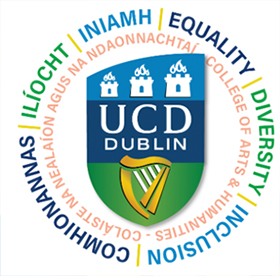 Equality, Diversity and Inclusion Report
Equality, Diversity and Inclusion Report